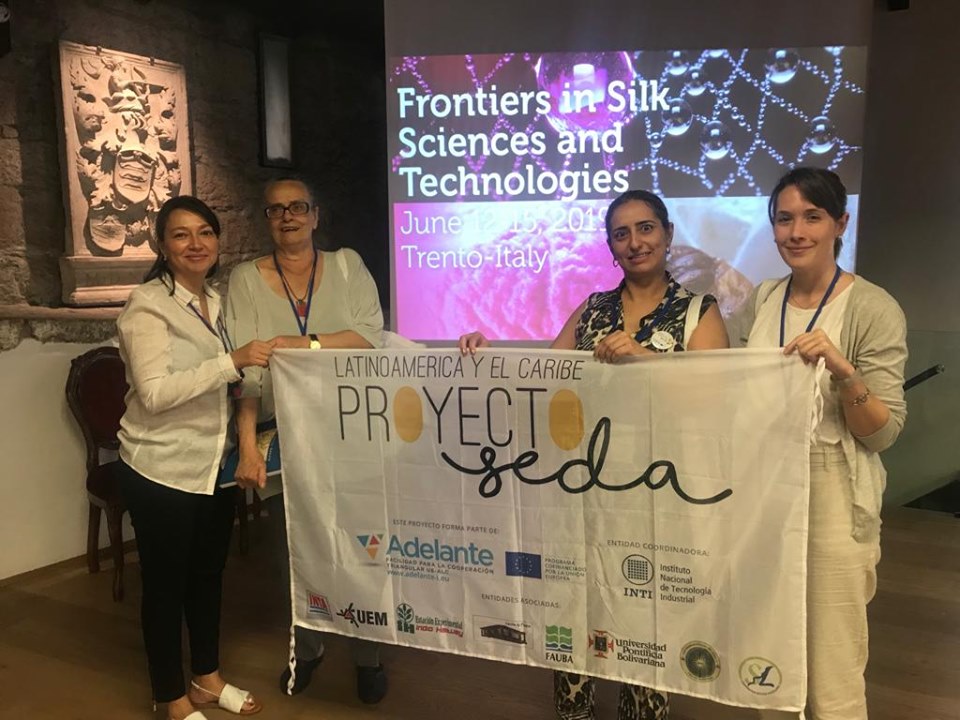Silk, Science and Technology in Italy

The SEDA Project was represented by women scientists who are part of the Project partner Entities in Frontiers in Silk and Tecnologies, Trento Innovation Conferences on Materials Engineering 2019, organized by the University of Trento from 12 to 15 June in the city of Trento, Italy.
Dr. Giovanna Salice, from the Cooperativa Sociolario, opened the day on Saturday 15 June with her "Bombyx mori production process: Latino-american experiences" Exhibition. Her work experience in accompanying the sericulture activity in countries of Latin America and the Caribbean, the establishment of the Latin American Silk Network and her current role as technical expert in the SEDA Project allowed her to share with the audience experiences of work and challenges faced for the consolidation of sericulture in the region as a source of employment, gender equity and poverty alleviation.
Engineer Adriana Resrtrepo Osorio, technical expert of the Universidad Pontificia Bolivariana de Colombia, presented "From silk fibrous waste to silk fibroin biomaterials", an investigation conducted in conjunction with her Research Group on New Materials and the groups of Agroindustrial, Cardiovascular Dynamics and Bioengineering of hes institution and the Center for Advanced Materials of the CIMAV in Monterrey, Mexico. This group of researchers worked on the pieces of silkworm cocoon waste that are discarded in the Colombian textile production processes, finding valuable uses for this waste and paving the way for the strengthening of the sustainability of the small-scale sericulture activity in Colombia.
Engineers Alessandra Silva from the State University of Maringá and Samanta Dobler from the National Institute of Industrial Technology attended the scientific conferences and then traveled to Padova to participate in an internship in sericulture delivered by Dr. Silvia Cappellozza, at CREA-API.







